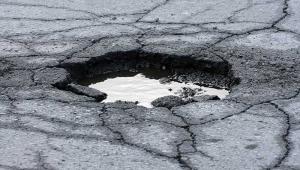By Richard Johnstone
12 May 2011
Councils should encourage volunteers to be on standby to help clear roads blocked by snow as part of attempts to boost the UK’s resilience to winter weather, MPs have said.
In a report published today, the Commons transport select committee said the travel chaos caused by snow last December cost the economy £280m per day in transport disruption alone.
The MPs call on the Department for Transport to publish practical advice on how individuals and communities can overcome problems caused by severe winter weather. This should include information for local authorities on how to encourage voluntary action to help keep transport networks running, based on experience. The committee cites evidence from witnesses to its inquiry, such as the Local Government Association, that arrangements in some areas had enabled volunteers to salt, grit and clear roads.
The report, Keepingthe UK moving: the impact on transport of the winter weather in December 2010, says: ‘We recommend that, before next winter, the government should publish online practical advice about how individuals and communities can overcome problems caused by severe winter weather. This information should also include guidance for local authorities on enabling and encouraging voluntary action, for example, in relation to the recruitment of volunteer snow wardens.’
The MPs found that the introduction of a central supply of salt for gritting roads, held by the DfT as a backup for local authorities’ own stocks, was a ‘considerable success’.
But they echoed comments by the Transport Secretary Philip Hammond that councils ‘need to look at ... how they could support community action with supplies of salt and grit’.
In a separate review of winter resilience published last December, David Quarmby, the chair of the RAC Foundation, found that local authorities performed well and disruption to the main roads had been minimal. However, he estimated that if local authorities were able to spend up to 50% more on winter resilience – from £200m from £300m – the economic benefits of less disruption would be between £50m and £400m.
The transport select committee says that it is ‘sympathetic’ to calls for more cash. ‘Extra investment should be targeted on those parts of the travel network which have shown themselves to be least resilient in recent years and where the costs of disruption are highest,’ it concludes.



















